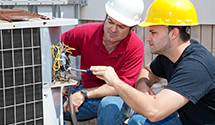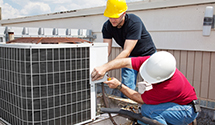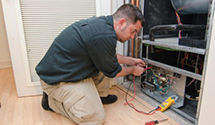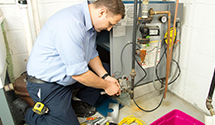24/7 Emergency HVAC Service in Grand Island, NE
Need emergency HVAC service in Grand Island, NE? Our specialist specialists are available 24/7 to handle your heating and cooling emergency situations. Call us at 888-406-7517 for instant assistance.
When faced with an unforeseen HVAC emergency, house owners require quickly, trustworthy options that restore comfort and safety to their homes. Whether it’s a sweltering summer season day with a broken ac system or a freezing winter night without heat, these scenarios require immediate attention from professionals who comprehend the seriousness and can act promptly. Our business focuses on supplying emergency HVAC services, guaranteeing that your home stays comfortable and safe no matter the time or season. Listed below, we’ll explore the typical HVAC emergencies, preventive measures, and why picking our service is the best decision for house owners in need.
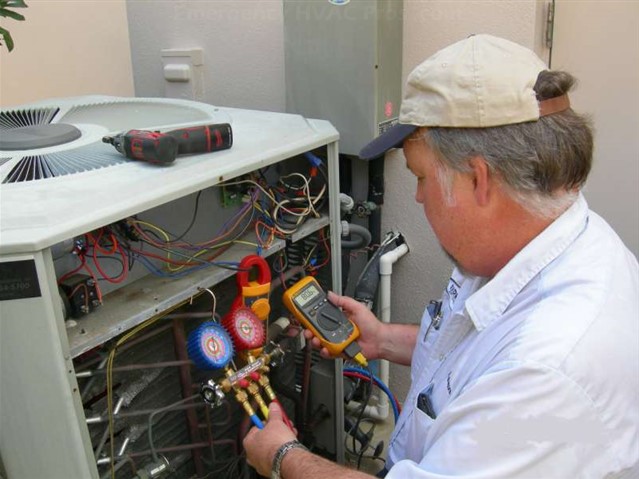
Comprehensive Emergency HVAC Services for Your Home in Grand Island
Our group of skilled HVAC specialists is trained to handle a large selection of emergency circumstances. With comprehensive understanding in both domestic heating and cooling systems, we are geared up to identify and repair any concern that might develop. Here are some of the most typical emergencies we react to:
1. Furnace Failures
A furnace breakdown throughout the coldest months of the year is not only uncomfortable but can also posture major health threats, particularly for susceptible relative. Typical heating system problems consist of:
- Ignition or Pilot Light Problems: Without a functioning ignition system or pilot burner, your heating system can not produce heat. This issue typically comes from a filthy or defective ignition component, which we can rapidly repair or change.
- Thermostat Malfunctions: If your furnace isn’t reacting to the thermostat settings, the issue could be with the thermostat itself. Our service technicians can recalibrate, fix, or change malfunctioning thermostats to restore your heating.
- Blower Motor Failures: The blower motor is responsible for circulating warm air throughout your home. If it fails, your heating system won’t be able to distribute heat correctly. We can detect and repair motor concerns to get your system back on track.
- Gas Line Issues: A problem with your heating system‘s gas line is a major safety issue. If you smell gas, it’s crucial to evacuate your home and call emergency services right away. Our team can deal with the required repair work to ensure your gas line is safe.
2. Cooling Breakdowns
A operating a/c is crucial during the hot summer season. When your a/c system fails, it can rapidly turn your home into an excruciating environment. A few of the most common a/c emergencies include:
- Refrigerant Leaks: Refrigerant is important for your air conditioning to cool the air. A leak not just reduces your system’s performance however can also trigger the compressor to get too hot. We can find and fix leaks, along with recharge your system with the correct amount of refrigerant.
- Compressor Failures: The compressor is the heart of your air conditioner system, and when it fails, the entire system can shut down. Whether the concern is electrical or mechanical, our professionals can detect and fix your compressor to restore cooling.
- Frozen Coils: When airflow is limited or refrigerant levels are low, the evaporator coils can freeze, leading to a system shutdown. We can thaw the coils and attend to the underlying cause to prevent future issues.
- Electrical Issues: a/c systems count on different electrical parts to operate correctly. From blown fuses to malfunctioning circuitry, electrical issues can trigger your system to fail. Our service technicians are competent in identifying and fixing these concerns rapidly.
3. Heat Pump Issues
Heatpump are a versatile service for both heating and cooling, making them an necessary element in numerous homes. However, they are not immune to problems. Common heat pump issues consist of:
- Reversing Valve Malfunctions: The reversing valve enables the heatpump to change in between heating and cooling modes. If this component stops working, your heatpump might be stuck in one mode. We can repair or replace the valve to restore proper performance.
- Defrost Cycle Problems: In cold weather, heatpump need to defrost regularly to prevent ice accumulation. If the defrost cycle isn’t working properly, ice can build up and reduce effectiveness. Our team can examine and repair defrost cycle concerns to ensure your heat pump runs efficiently.
- Air flow Problems: Restricted airflow can trigger your heat pump to work harder than required, causing increased wear and tear. We can determine and remove obstructions in your system to enhance air flow and performance.
4. Ductwork Problems
Your home’s ductwork is responsible for distributing conditioned air throughout your home. Issues with your ducts can jeopardize the performance of your HVAC system and result in irregular temperatures or bad air quality. Typical ductwork emergency situations include:
- Leaky Ducts: Over time, ducts can establish leaks that enable conditioned air to escape before it reaches its destination. This not only reduces performance however can also increase energy costs. We can find and seal duct leaks to enhance your system’s efficiency.
- Blocked Ducts: Obstructions in your ductwork, such as debris or pest invasions, can restrict airflow and cause your HVAC system to work harder. Our group can clear clogs and ensure your ducts are clean and devoid of obstructions.
- Poor Insulation: Inadequately insulated ducts can lose a substantial amount of heating or cooling energy as air journeys through them. We can assess your duct insulation and recommend enhancements to enhance your system’s effectiveness.
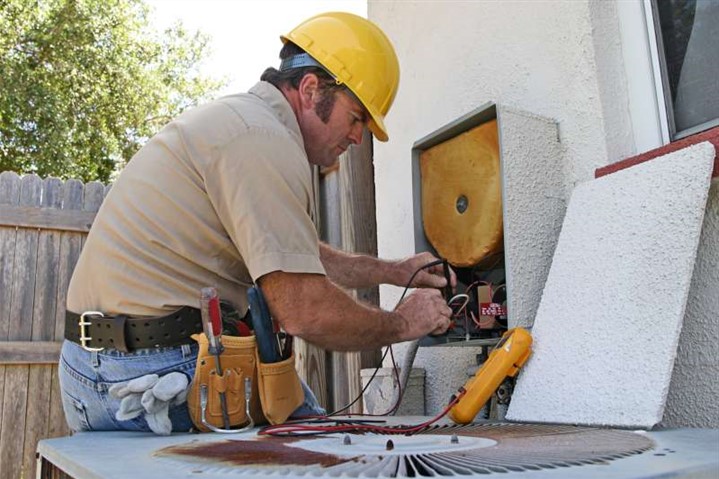
Proactive Steps to Prevent HVAC Emergencies in Hall County
While it’s difficult to eliminate the threat of HVAC emergency situations entirely, there are proactive steps homeowners can require to reduce the likelihood of a breakdown. Here are some necessary pointers to keep your system running smoothly:
1. Schedule Regular Maintenance
Regular upkeep is the cornerstone of a dependable HVAC system. By scheduling regular inspections and tune-ups, you can catch prospective concerns before they become emergency situations. During a upkeep see, our service technicians will:
- Check and clean crucial parts such as coils, burners, and blowers.
- Check refrigerant levels and complement if necessary.
- Test the thermostat and recalibrate it if needed.
- Lubricate moving parts to decrease wear and tear.
- Examine electrical connections and tighten up any loose wires.
By staying on top of maintenance, you can extend the life expectancy of your HVAC system and minimize the likelihood of a unexpected breakdown.
2. Replace Air Filters Regularly
Among the simplest yet most effective methods to keep your HVAC system running effectively is by replacing the air filters regularly. A filthy filter can obstruct air flow, causing your system to work more difficult and increasing the risk of a breakdown. Depending upon your system and home environment, it’s suggested to replace the filter every 1-3 months.
3. Monitor Your Energy Bills
A sudden spike in your energy expenses can be a indication that your HVAC system is struggling. If you see an unusual boost in your monthly energy expenses, it’s worth having your system inspected by a professional. Early detection of problems can avoid more considerable problems down the line.
4. Keep the Area Around Your HVAC Units Clear
Ensure that the areas around your indoor and outside HVAC units are free from debris, vegetation, and other blockages. This enables proper airflow and lowers the danger of your system overheating. In addition, frequently cleaning the location around your systems can prevent bugs from nesting in your devices.
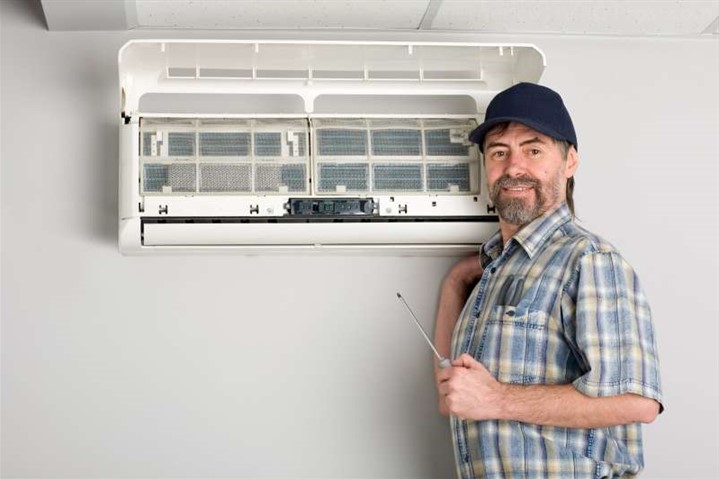
Why Choose Our Emergency HVAC Services?
When you’re handling an HVAC emergency, you require a group of HVAC Contractors in Nebraska that you can depend offer timely and reputable service. Here’s why property owners choose us for their emergency HVAC requires:
1. 24/7 HVAC Contractor Availability
HVAC emergency situations don’t adhere to a schedule, which is why our team is readily available 24/7 to react to your call. Whether it’s the middle of the night, a weekend, or a holiday, we’re prepared to assist you whenever you require us.
2. Fast Response Times
In an emergency, every minute counts. Our professionals are tactically located to ensure we can reach your home quickly and begin repairs as soon as possible. We understand the value of restoring your home’s convenience and work efficiently to minimize downtime.
3. Experienced and Highly Trained Technicians
Our team includes highly trained HVAC specialists who have years of experience handling all kinds of emergency repair work. We remain up-to-date with the current industry standards and best practices to provide you with the highest quality service.
4. Transparent Pricing
Our company believe in providing our consumers with honest, transparent prices. Before we start any work, we’ll supply you with a clear estimate of the costs included. There are no hidden charges or surprise charges– simply uncomplicated, reliable service you can rely on.
5. Premium Repairs and Parts
We utilize just the highest quality parts and equipment for our repair work, making sure that your HVAC system is brought back to peak performance. Our repairs are constructed to last, offering you peace of mind that your system will continue to run smoothly long after we’ve completed the job.
When to Call for Emergency HVAC Service
It’s important to understand when an HVAC problem requires instant attention. Here are some signs that it’s time to call for emergency service:
- Total System Failure: If your heating or cooling system stops working entirely, it’s time to call a expert. A complete system failure is a clear indication that something is seriously incorrect and needs immediate attention.
- Unusual Noises: Loud, unusual sounds such as banging, clanking, or shrieking can show a severe problem with your HVAC system. These sounds frequently signal a mechanical problem that needs to be dealt with before it leads to a total breakdown.
- Burning Smell: A burning smell originating from your HVAC system is a cause for issue. It could indicate an electrical problem, such as overheating wires or elements, which presents a fire danger. Turn off your system instantly and call for emergency service.
- Sudden Temperature Fluctuations: If your home’s temperature is changing hugely or your system is struggling to maintain a constant temperature, it’s a sign that your HVAC system is not working properly. An emergency examination can recognize the concern and avoid more damage.
- Water Leaks: Water pooling around your HVAC system could indicate a refrigerant leak or a issue with the condensate drain. These issues can cause significant damage to your system and your home if not addressed immediately.
Contact Us for Reliable Emergency HVAC Service
A/c emergencies require timely action from knowledgeable experts. Our group is here to supply you with quickly, trusted service whenever you require it. Don’t let a heating or cooling emergency disrupt your life– reach out to us for instant help. We’re readily available 24/7 to react to your call and bring back convenience to your home.
Call us now at 888-406-7517 for quickly, trustworthy emergency HVAC service. We’re here to help you get your system back up and running as quickly as possible, so you can return to enjoying a comfy, safe home.
We can provide 24/7 Emergency HVAC Service for all areas in Grand Island, NE including: Hall County, , Hall County Regional Airport, in Zip Codes 68801, 68802, 68803 and in Area Codes 308, 308
We can provide HVAC Contractors for all areas in Hall County including:


